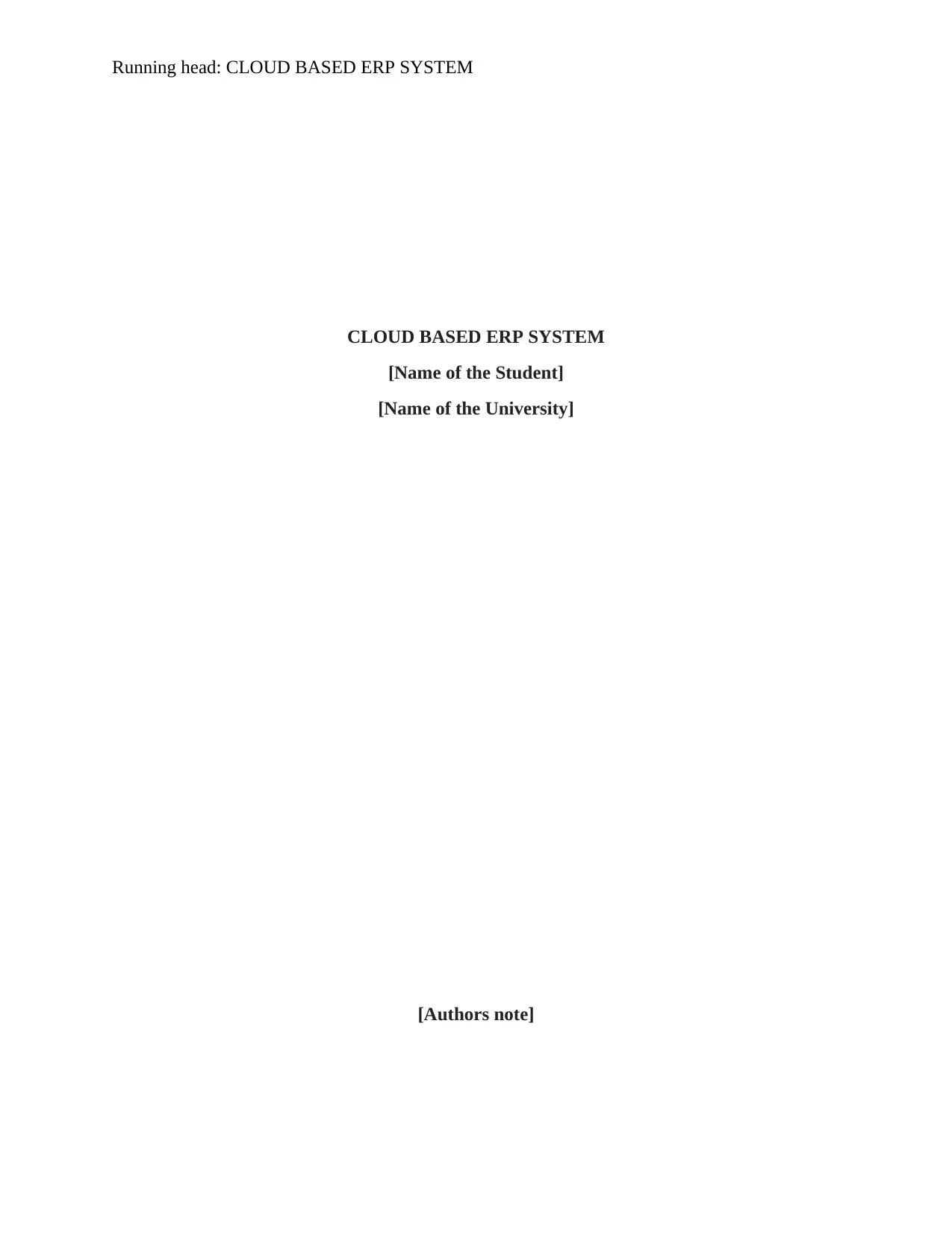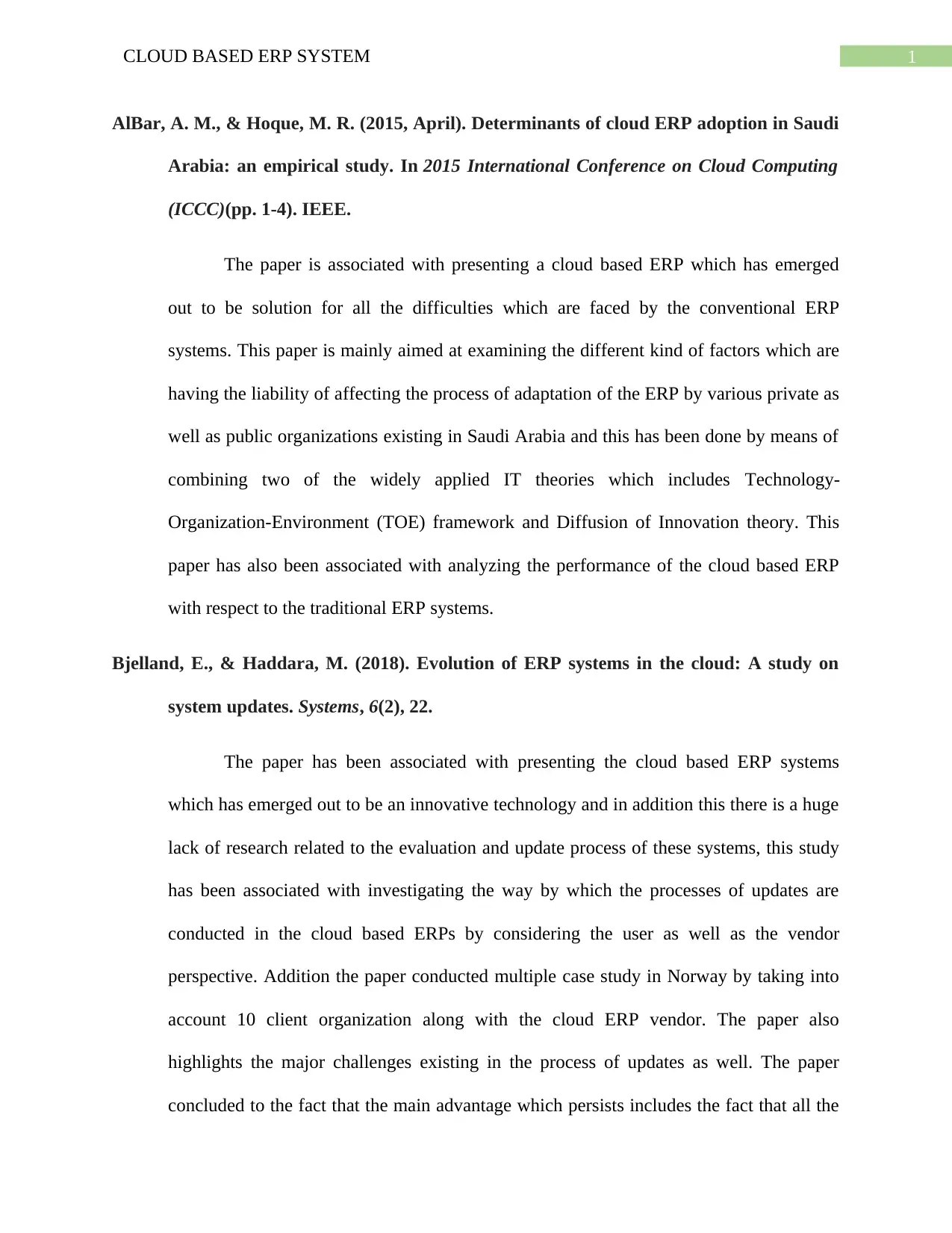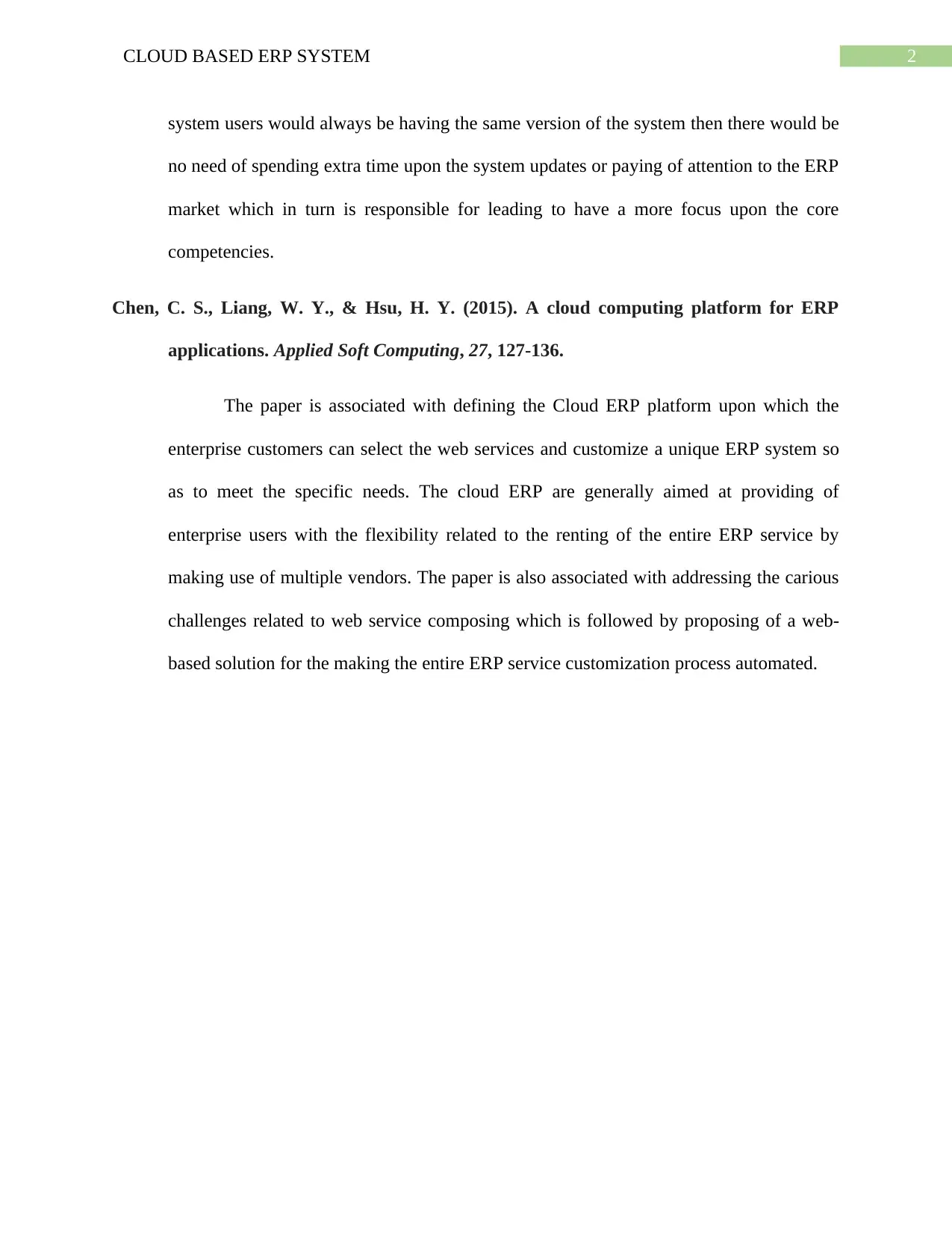Business Analyst's E-Portfolio: Cloud ERP System Analysis
VerifiedAdded on 2022/11/13
|3
|558
|148
Portfolio
AI Summary
This portfolio, created by a Business Analyst, provides a synopsis and reflection on learning from an Enterprise Systems course. The portfolio focuses on Cloud-based ERP systems, examining their emergence as a solution to traditional ERP challenges. It analyzes factors influencing ERP adoption in public and private organizations, drawing upon the Technology-Organization-Environment (TOE) framework and Diffusion of Innovation theory. The portfolio also evaluates the performance of Cloud ERP systems compared to traditional systems, investigates the system update processes from user and vendor perspectives, and addresses the challenges related to web service composing and customization. The presented papers highlight the advantages of Cloud ERP, such as consistent system versions and focused core competencies. The portfolio aims to demonstrate the learning outcomes of the course, including the ability to evaluate and integrate information sources, describe the role of enterprise systems within the larger IT infrastructure, identify implementation considerations, and present a coordinated exposition of knowledge.
1 out of 3










![[object Object]](/_next/static/media/star-bottom.7253800d.svg)